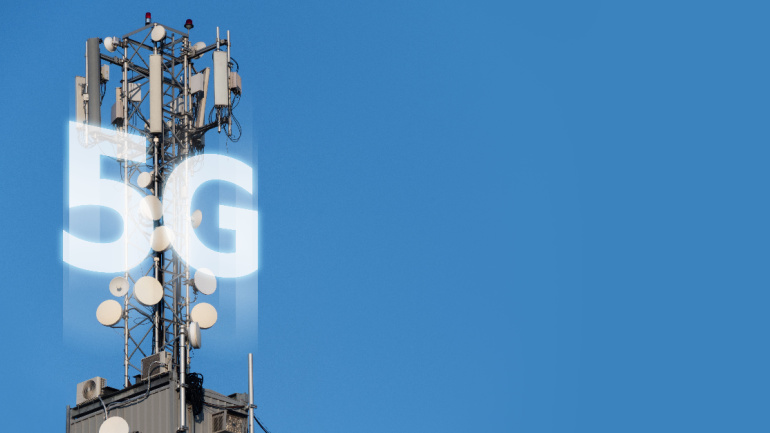Italian telecom provider Wind Tre faces hurdles in selling infrastructure due to complex 5G network sharing negotiations with rivals Iliad and Fastweb. CK Hutchison delays the deal closure by three months to February 12, citing challenges with Iliad and Fastweb. Meanwhile, Indosat Ooredoo Hutchison’s $6 billion merger in Indonesia with Huawei’s support achieves significant growth. France’s Orange introduces satellite broadband, while Norway’s Telenor sells its satellite operations. FCC’s new broadband rules target discrimination, raising concerns of unintended consequences. Mavenir and Nokia achieve remarkable Open RAN interoperability, overcoming past criticisms and showcasing commitment to multi-supplier systems.
RETN, a leading international network services provider, is pleased to announce the launch of its latest network connectivity route from Padua to Vienna. Leveraging the VSIX Padua Point of Presence (PoP), this newly established route is designed to strengthen internet utilisation in the Veneto region by fostering collaboration among local, national, and international Internet Service Providers.
With a myriad of options available, choosing the right SIP trunking provider can be daunting. That’s why we’ve compiled a comprehensive list of the top 10 best SIP trunking providers. This article provides an overview of key features, reliability, scalability, customer support, and pricing models. It gives you the necessary information to make an informed decision to transform your business communication infrastructure with this information.
TELUS International and Five9 launch an advanced AI-powered Contact Center as a Service platform. Phonism integrates with Cisco’s Webex, providing cost-effective device management and streamlining collaboration. Viking Electronics endorses Ooma AirDial as a reliable POTS replacement, emphasizing wireless turnkey solutions. Cresta unveils AI enhancements for contact centers, driven by Large Language Models, promising unprecedented performance and productivity.
Under the Online Safety Act, UK’s telecoms regulator Ofcom, gears up to reinforce online safety, focusing on protecting vulnerable users, especially children. Their proposed laws call for tech firms’ accountability, ensuring a thorough content governance to curb harmful material. They seek stakeholder feedback on their initial codes against illegal harms online, marking the end of harmful content and the dawn of user safety.
As 5G Fixed Wireless Access (FWA) evolves with its next phase, 5G Advanced, worldwide research indicates growth and potential for higher speeds and reduced latency. The Middle East currently showcases impressive progress with over 1.6 million 5G FWA users. Yet, debates exist over its future, exploring whether 5G FWA will remain an affordable alternative to fixed broadband or tap into its speed for new applications. Moreover, cost is a concern for Customer Premises Equipment (CPE) devices, considered a current hurdle in advancing 5G FWA.
The FCC is poised to address digital equity, introducing measures aimed at eliminating any biased broadband service access. However, controversy surrounds these new regulations, with critics framing them as an invasive expansion of FCC control. Intriguing dialogue likely awaits in their upcoming November meeting.
Telefonica embarks on a bold plan to revitalize its cash flow and revenues. In a strategy termed ‘GPS’, it plans to amplify free cash flow generation, while also targeting significant growth in various sectors like retail and digital services. Interestingly, the plan marries stringent financial targets with the crucial aspect of digital transformation – an ambitious endeavor that could redefine the company’s standing moving forward.
Samsung enters the mobile AI game with Galaxy AI, its latest invention aimed to revolutionize smartphone experiences. Powered by Samsung-developed on-device AI and a cloud-based system, it incorporates remarkable features like real-time audio and text translation during phone calls. Alongside this, Samsung excites with Samsung Gauss, dedicated to streamlining diverse tasks from coding assistance to content translation – a move promising profound impacts on our technology interactions.
The Global Coalition on Telecommunications (GCOT), launched by the UK, Australia, Canada, Japan, and the US, intends to revolutionize telecommunications through joint R&D, funding alignments, and standard development. Offering insights into the initiative’s broad scope, TMT partner Julian Cunningham-Day highlights the coalition’s focus on supply chain diversification and market competition through Open RAN. Despite the promising advantages, potential vulnerabilities may arise from industry-wide open standards. Additonally, GCOT’s emphasis on yet to be realized 6G technology signals its proactive stance towards future complexities.













